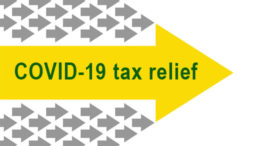Credit and debit card fraud was already a big problem when COVID-19 hit. Although how much payment card fraud increased in 2020 depends on the source, most experts agree that, like most types of fraud, it flourished during the pandemic. COVID-19-related prevention and treatment scams and increased online shopping likely contributed to this rise.
If you become a victim, it’s probably good to hear that the law protects consumers from serious losses. But to reduce financial liability, you need to follow the reporting rules carefully.
Unauthorized credit card charges
If your credit card is lost or stolen and you report the loss to the card issuer before your card is used in a fraudulent transaction, you can’t be held responsible for any unauthorized charges. If you report it after unauthorized charges have been made, you may be responsible for up to $50 in charges.
Some card issuers have decided not to hold their customers liable for any fraudulent charges regardless of when they notify the card company. And if your account number is stolen but not the actual card, your liability is $0. But either you or the card issuer must identify the fraudulent transactions for them to be removed.
Compromised debit cards
If you report a missing debit card before any unauthorized transactions are made, you aren’t responsible for any unauthorized transactions. If you report a card loss within two business days after you learn of the loss, your maximum liability for unauthorized transactions is $50.
If you report the card loss after two business days but within 60 calendar days of the date your statement showing an unauthorized transaction was mailed, your liability can jump to $500. Finally, if you report the card loss more than 60 calendar days after your statement showing unauthorized transactions was sent, you could be liable for all charges. This includes money taken from accounts linked to your debit account.
What if you notice an unauthorized debit card transaction on your statement, but your card is still in your possession? You have 60 calendar days after the statement showing the unauthorized transaction is sent to report it and avoid liability.
Action steps
When reporting a card loss or fraudulent transaction, contact the issuer via phone. Then follow up with a letter or email. This should include your account number, the date you noticed the card was missing (if applicable), and the date you initially reported the card loss or fraudulent transaction.
Because liability levels depend in some circumstances on your card issuer, it pays to find out your issuer’s policies — before you’re subject to them. Also take steps to protect your payment card and personal information. The Federal Trade Commission provides a good list of fraud protection practices at consumer.ftc.gov (search for “credit card fraud”). Contact us for more information.
© 2021 Covenant CPA



